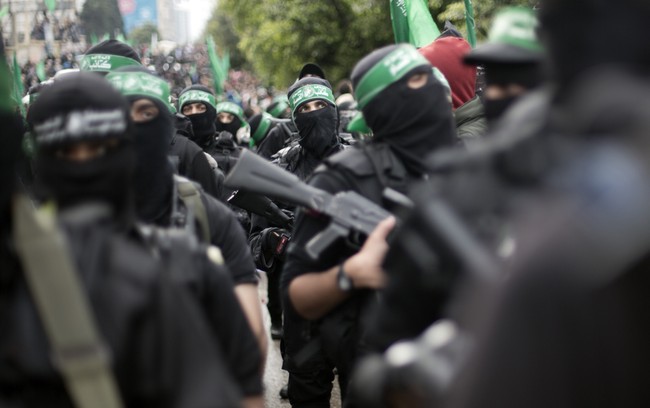Top News
Latest Poll Shows a Lot of Support for Hamas Among Palestinians

One of the arguments you’ve probably heard circulating during the war in Gaza is that there’s a difference between Hamas, who the US government and most sane people see as terrorists, and Palestinians, who are usually portrayed as innocent civilians.
An inconvenient fact for supporters of this division is that Hamas is not just a militant group operating in Gaza, they are the elected leaders of Gaza. Nevertheless, we’re told that not all Palestinians support Hamas.
But a new poll released Wednesday calls into question that idea. In fact, Hamas, its leaders and the attack on Israel on 10/7 remain remarkably popular in Gaza and the West Bank even after five months of fighting in which Palestinians have seen significant casualties. Let’s start with support for the 10/7 attack which started the war.
As you can see, total support for the murder of 1,200 Israelis is almost unchanged at 71%. But as the survey shows, there has been a change between respondents in the West Bank and those in Gaza. In Gaza, support for the attack has gone up from 57% last December to 71% now.
I’m far from the first to point this out but who is Israel supposed to make peace with here? The people who support murdering Israeli civilians in a surprise attack (and who would support the next similar attack just as strongly)?
Despite the fact that Hamas fighters filmed themselves committing murders of Israeli civilians including women and children, Palestinians universally agree that only Israel has committed war crimes: ” As we found in the previous poll, almost all Palestinians (94% think Israel has committed war crimes during the current war. By contrast, only 5% (compared to 10% three months ago) think Hamas also committed such crimes.”
Palestinians in Gaza also believe more strongly than in December that Hamas will win the war: ” Today, the majority expects Hamas to win. But it is a little smaller majority than we found three months ago, 64% and 70% respectively. It is worth noting, as indicated in the figure below, that today, more Gazans expect Hamas to win than three months ago, 56% and 50% respectively.” What can winning possibly mean at this point other than surviving and getting another chance to strike Israel? If their chances of winning have improved it can’t be because of what is happening in Gaza. They are hoping for a PR win.
Asked who should control Gaza when the war ends, 52% of Gazans said Hamas as did 64% of those in the West Bank. As for now, Palestinians are very satisfied with Hamas and with suspected Oct. 7 mastermind Yahya Sinwar. Gazan support for Hamas is up to 62% and support for Sinwar is unchanged at 52%:
There will never be peace with Hamas. The only hope is that support for them and for more murderous attacks on Israelis will decline after they are absolutely defeated. If this poll is remotely accurate, it’s grounds for continuing the invasion until Hamas is gone and Yahya Sinwar is dead or captured. Anything less will just start the whole cycle of Palestinian violence over again. The time to stop the next Hamas-led attack is now.
Finally, I can’t help noticing that NBC News ran a story about this new poll which tries to spin it as positive in some way:
Support for Hamas as a political party has fallen to 34% among Palestinians in Gaza and the occupied West Bank, a 12-point drop from December 2023, according to a poll released Wednesday by a leading Palestinian research institute.
First, notice this is only in reference to Hamas as a political entity. As mentioned above, Hamas is still quite popular as a militant group. Second, NBC got the numbers wrong. Several paragraphs later NBC reports:
Support has been less volatile in Gaza, where 38% supported Hamas in September 2023, 42% in December 2023, and 34% this month.
So if support was at 42% in December (and it was according to figure 25 on this page) and is at 34% now, that’s an 8-point drop not a 12-point drop. It’s also probably the least interesting thing in this entire poll.
Read the full article here


















